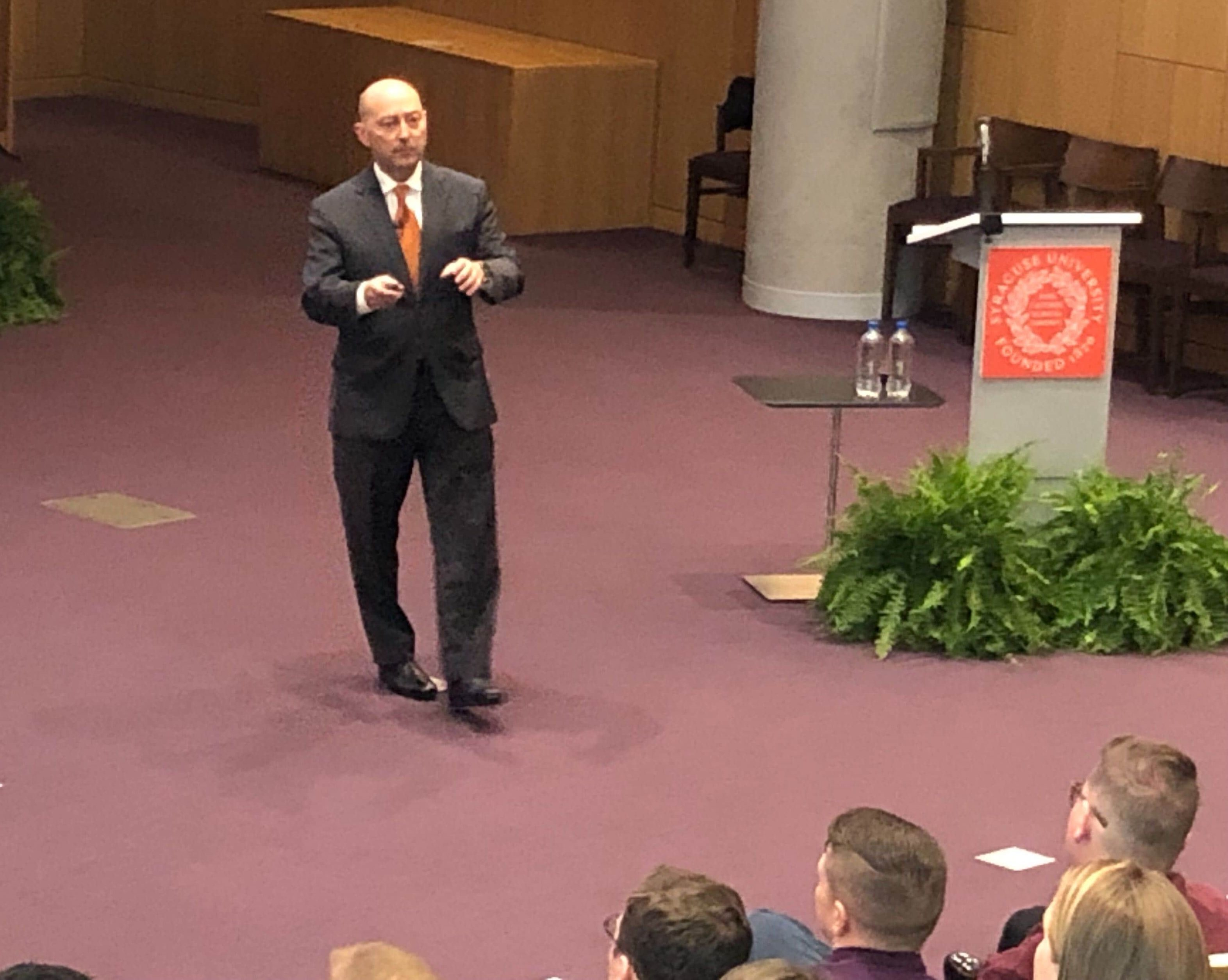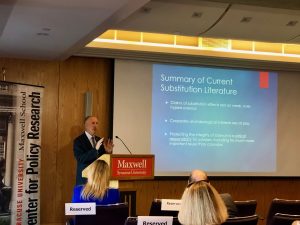Navy admiral discusses leadership at Syracuse University lecture
Navy admiral discusses leadership at Syracuse University lecture
A photo Admiral James Stavridis was given as a gift was driving him crazy. At first glance, the photo, taken in 1949, looked like a normal picture of a Navy ship and its crew. But upon closer inspection, Stavridis noticed that three chief petty officers were missing from the row of sailors in the second row of the photo.
Stavridis later found the missing sailors in the back rows of the photo, dressed like the officers in the front. But unlike the chief petty officers in the front rows of the photo, the officers in the back were black.
“I don’t know why those three African-Americans were taken out of this formation and told to go to the back of the formation, but I’m giving an educated guess,” Stavridis said at a lecture on Thursday. “The captain said: ‘You three, go to the back.’”
The point of discussing the photo, Stavridis said, was to encourage leaders to look hard at established norms before they accept them.
“Ask yourself every day: ‘What am I doing today that in 50 years or 100 years is going to look oh, so wrong,” he said.
Stavridis, a retired Navy admiral and NATO’s 16th Supreme Allied Commander Europe, spoke about leadership and the United States’ global challenges to an audience of about 100 people on Thursday in Syracuse University’s College of Law. The retired admiral, who has overseen NATO operations in the Middle East and US military operations in Latin America, spoke as part of SU’s D’Aniello Family Speaker Series and the University Lectures program. Stavridis is also Chief International Security Analyst for NBC News and a columnist for TIME.

Some of the largest challenges American leaders will need to face in the future include global warming, terrorism, pandemics and cyberwarfare, Stavridis said. As the 21st century unfolds, he said American leaders need to confront the unexpected nature of the challenges and our inability to predict what might occur.
The Islamic State, which many believed to be defeated, will continue to be a challenge because of its ability to recruit people online, Stavridis said. He added that he expects the world will have to confront a pandemic similar to the Spanish influenza outbreak in 1918, which killed millions of people.
Stavridis said he learned to question his expectations after working in the Pentagon during 9/11. His office was near the part of the building destroyed by terrorists who hijacked American Airlines Flight 77.
“Here I was in the safest place in the world. I’m in the Pentagon. I’m behind massive concrete walls. I’m defended by the strongest military on Earth. I’m in the capital of the richest country on the planet. Was I safe?” Stavridis said. “I saw my share of combat in 37 years in the Navy. This is the closest I came to losing my life.”
In the 21st century, our ideas of world-influencing leaders are changing, Stavridis said. While President Franklin Delano Roosevelt may have been the most influential leader of the 20th century, today’s leaders include people like Lady Gaga, Bill Gates, Oprah and German Chancellor Angela Merkel, he added.
“It’s a different world for leaders,” Stavridis said. “But there are still tools that I think apply across the spectrum of challenge and across the spectrum of leadership.”
Those tools include education, innovation and listening. When leaders fail, Stavridis said it’s because they fail to listen to their peers, subordinates and competitors. The United States needs to do a better job of observing and listening to its competitors, including Russia, Stavridis said.
Real-world collaboration is hard, Stavridis said, but it’s at the heart of a leader’s skill set.
“Until we listen and understand them, we cannot solve our disagreements with them,” he said.








